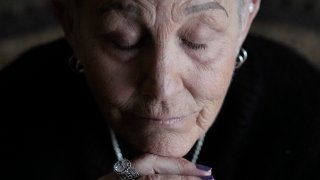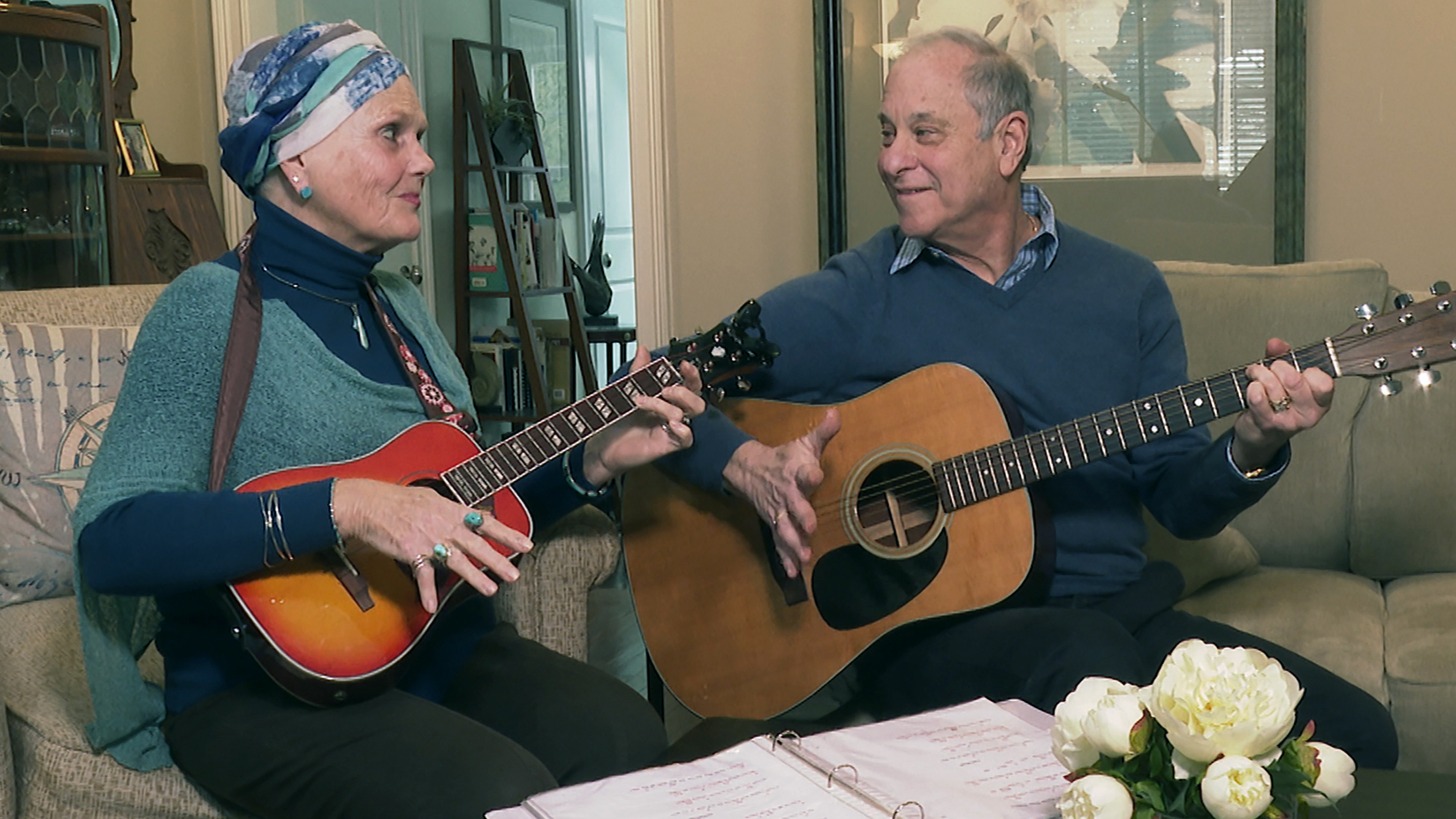
On a brisk day at a restaurant outside Chicago, Deb Robertson sat with her teenage grandson to talk about her death.
She’ll probably miss his high school graduation.
Death doesn't frighten her much. The 65-year-old didn’t cry when she learned two months ago that the cancerous tumors in her liver were spreading, portending a tormented death.
But later, she received a call. A bill moving through the Illinois Legislature to allow certain terminally ill patients to end their lives with a doctor’s help had made progress.
Get DFW local news, weather forecasts and entertainment stories to your inbox. Sign up for NBC DFW newsletters.
Then she cried.
“Medical aid in dying is not me choosing to die,” she says she told her 17-year-old grandson. “I am going to die. But it is my way of having a little bit more control over what it looks like in the end.”
That same conversation is happening beside hospital beds and around dinner tables across the country, as Americans who are nearing life’s end negotiate the terms with themselves, their families and, now, state lawmakers.
At least 12 states currently have bills that would legalize physician-assisted death. Eight states and Washington, D.C., already allow it, but only for their own residents. Vermont and Oregon permit any qualifying American to travel to their state for the practice. Patients must be at least 18 years old, within six months of death and be assessed to ensure they are capable of making an informed decision.
Two states have gone in the opposite direction. Kansas has a bill to further criminalize those who help someone with their physician-assisted death. West Virginia is asking voters to enshrine its current ban into the state constitution.
That patchwork of laws has left Americans in most states without recourse. Some patients choose to apply for residency in a state where it’s legal. Others take arduous trips in the late-stage of disease to die in unfamiliar places and beds, far from family, friends and pets.
It was late at night when Rod Azama awoke to his wife crawling on the floor, screaming. Pain from her cancer had punched through the heavy morphine dose.
“Let me die,” screamed his wife, Susan.
As Rod rushed to hold her, the cries faded to repeated mumbles. “Heaven,” she said, again and again.
Susan, 68, pieced through her life’s belongings — family heirlooms, photos, an antique spinning wheel — touching the memories a final time. Then she decided where their next lives would be.
She said goodbye to her constant sidekick, Sunny, a fluffy Maltipoo.
Then the couple traveled to Oregon.
The issue is contentious. Opponents have moral objections with the very concept of someone ending their life. Even with safeguards in place, they argue, the decision could be made for the wrong reasons, including depression or pressure from family burdened by their caretaking.
“It’s normalizing suicide, and it’s incentivizing individuals to end their lives,” said Danielle Pimentel of Americans United for Life. Pimentel raised concerns that pain isn’t the top reason people choose an early departure, adding that policy should focus on bettering end-of-life care.
Two national organizations lobbying for the bills argue it’s about autonomy and compassion, some power over one’s preordained exit.
“It comes down to the right of an individual to control their own end of life decisions free from government intervention or religious interference,” said Goeff Sugerman, national campaign strategist Death with Dignity.
Even though it’s illegal in most states, a 2018 Gallup poll showed more than two-thirds of Americans support the practice.
Only a small fraction of Americans across the country, about 8,700, have used physician-assisted death since Oregon became the first state to legalize it in 1997, according to the advocacy group Compassion & Choices.
The organization successfully sued Oregon and Vermont over their residency requirements in the last two years and are using the courts to expand access. California has a bill before lawmakers that would allow out-of-staters to access the procedure. Three states, including Colorado, have proposals to expand in-state access, such as allowing advanced practice registered nurses, not just doctors, to prescribe the medication.
As Robertson discussed the topic with her grandson, he got teary eyed. If it became legal in Illinois tonight, would his grandmother be gone tomorrow? How does it differ from suicides that left empty seats at his school?
Robertson reassured him it would be the very last option as she embarks on new chemotherapy treatment. Then she explained the safeguards.
Typically, two doctors must confirm that a patient has six months to live. The patient must verbally request it twice with a waiting period that varies by state, and submit a written request with witnesses. At three meetings, a physician assesses the patient to ensure they are able to make an informed decision. The patient can be referred to a psychologist for an assessment if there are concerns.
Patients must take the medication themselves. They lose consciousness within a few minutes, and die usually within a few hours.
Eventually the teenager met her eyes. “Granny, I support whatever you choose to do,” he said.
When Gary Drake, a jovial businessman from Florida, received a diagnosis that lung, bone and kidney cancer would end his life within six months, he didn’t deliberate long.
The 78-year-old flew to Oregon in February, after beginning a Facebook post with “RIP.”
“I love you all, say a prayer for me, and I’ll see you on the other side,” the Feb. 13 post read.
His son, Mitch, flew to Oregon to meet with his father. They said their goodbyes, then Drake drank the medicine.
As they played his song request, “Toes” by Zac Brown Band, Drake put the cup down and sang.
“I got my toes in the water, ass in the sand
Not a worry in the world, a cold beer in my hand
Life is good today
Life is good today.”
Then he fell asleep.
___
Bedayn is a corps member for the Associated Press/Report for America Statehouse News Initiative. Report for America is a nonprofit national service program that places journalists in local newsrooms to report on undercovered issues.



